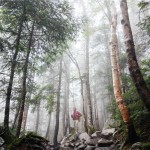We run our website the way we wished the whole internet worked: we provide high quality original content with no ads. We are funded solely by your direct support. Please consider supporting this project.
“Unclean” Animals and the Corruption of Creation
I’ve always been a bit mystified over the distinction between “clean” and “unclean” animals in the OT. I have read several attempts to justify this distinction on the grounds that the former were healthier — or at least less dangerous — to eat, but these defenses never struck me as all that convincing. In his recent book Is God a Moral Monster? (Baker, 2011), Paul Copan offers a much more compelling defense of this distinction (pages 79-84). One aspect of his argument I found particularly interesting was his contention that animals were considered “clean” because they reflect the original order of creation more perfectly than the “unclean” animals and “unclean” because they reflect the effects of the fall more than the “clean” animals.
The connection between the “clean” and “unclean” distinction, on the one hand, and the creation and fall, on the other, is reflected in the book of Leviticus by the repeated phrases “you may eat” and “you shall not eat” (Lev. 11:3, 9, 11, 21, 22) which, Copan argues, echo the provision and prohibition to Adam and Eve in the garden (Gen. 2:16; 3:2). This connection arguably explains why predators and animals that had been preyed on were prohibited (Ex 22:31; Lev. 17:14) for, according to the Genesis narrative, the original creation was non-carnivorous (Gen. 1:31). Even when humans were permitted to eat meat after the flood they had to first drain the blood out, for the blood was (and is?) considered sacred (Gen. 9:4). Hence, animals that prey on others and consume their blood are, to this degree, out of sync with God’s creational design.
What I find most significant is that this explanation of the “clean” and “unclean” distinction presupposes that nature has been significantly affected by the fall, as the Genesis narrative itself suggests (Gen. 3: 14-19) and other passages of Scripture confirm (e.g. Rom. 8: 19-22). The very fact that Satan is said to hold the power of death (Heb 2:14) reveals how thoroughly creation has been corrupted, for it means that, at least as we now experience it, there is nothing “natural” about death. So too, the fact that the New Testament consistently depicts physical infirmities as directly or indirectly due to Satan and demonic influences makes this point as well.
As I argued on this blog several years ago (it was actually several blog posts sprinkled throughout 2007 beginning here), the view that nature itself has been corrupted by fallen spirit agents has enormous apologetic value, for it means there is no such thing as “natural evil.” While we should avoid the nonsense of claiming there’s a specific demonic force behind every physical infirmity or every “natural” disaster, we can and should nevertheless claim that, were it not for the corrupting influence of Satan and demonic powers in nature, there wouldn’t be any physical infirmities or “natural” disasters. For the same reason, it also means we don’t have to accept that infirmities and disasters are “acts of God.” And, as I argued in an essay entitled “Evolution as Cosmic Conflict” (included in T. Oord, ed., Creation Made Free, Pickwick, 2008), this perspective also helps explain why the evolutionary process leading up to humans was so remarkably violent. (I address the apparent conflict between this perspective and Gen. 1:30 in my essay).
So, the next time you see a “natural” disaster, experience a physical infirmity, encounter a death, witness an animal ripping another apart or (if you must), bite into one yourself, remember that the creation wasn’t originally meant to be this way, and one day it will be so no longer (Isa 11:6-9).
Peace
Greg
Category: General
Tags: Animals, Problem of Evil
Related Reading

Baby Universalism and Reasonable Infanticide
Here’s a perfectly random brain stimulator: In contemporary western Christianity it is almost universally assumed that deceased babies automatically go to heaven. I call this the doctrine of “baby universalism” (similar to “canine universalism” = “all dogs go to heaven”). There are a few scriptural passages that can be used to support this perspective (e.g.…

Christians and Creation Care
Image by Ali Inay While the mustard seed of the Kingdom has been planted, it obviously hasn’t yet taken over the entire garden (Matt 13:31-42). We continue to live in an oppressed, corrupted world. We live in the tension between the “already” and the “not yet.” Not only this, but we who are the appointed landlords…

Did God Cause the Polar Vortex?
When is this polar vortex thing going to end? It’s March, and even in Minnesota we expect to see temperatures warmer than this. With all of the sleet and cold in the south, it seems like schools are closing more than they are open. While this is not a catastrophic event like a hurricane, tsunami,…

If God is already doing the most he can do, how does prayer increase his influence?
Question: If God always does the most that he can in every tragic situation, as you claim in Satan and the Problem of Evil, how can you believe that prayer increases his influence, as you also claim? It seems if you grant that prayer increases God’s influence, you have to deny God was previously doing…

Enduring an Evil-Infested World (6 Principles) —part one
We live in the midst of a spiritual battlefield where we face evil daily. Yet we are also in the midst of an ambiguity that hinders us from knowing why any given evil occurs as it does. Can we find solace, hope, and courage in the midst of this war, especially when we face meaningless…

The Risk of Love & the Source of Evil
On Sunday Greg tweeted the following: Love IS a tremendous risk. But if humans ever concluded the risk was not worth it, we likely become extinct rather quickly. … Yes, love is risky. It costs us everything, and we sometimes get terribly hurt. But it’s this risk that “makes the world go round.” … And…
